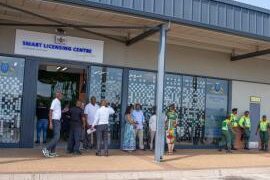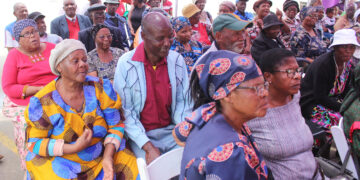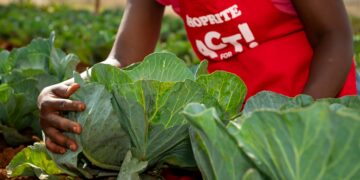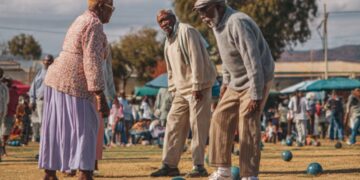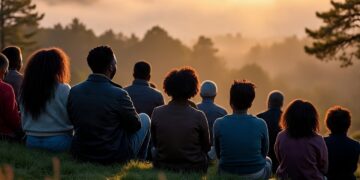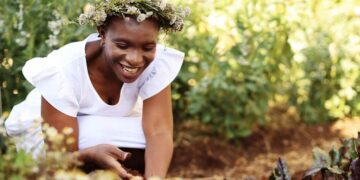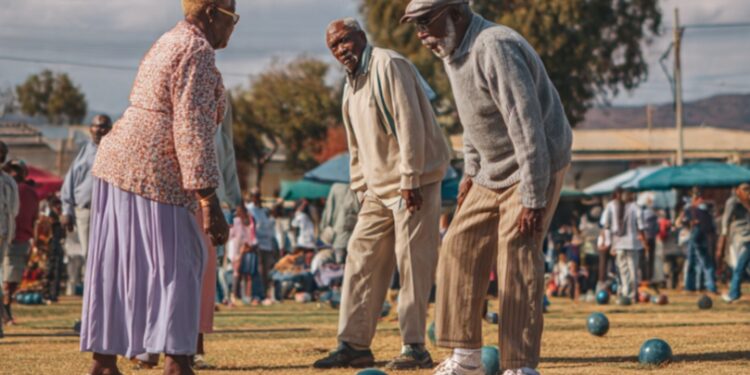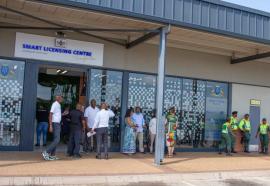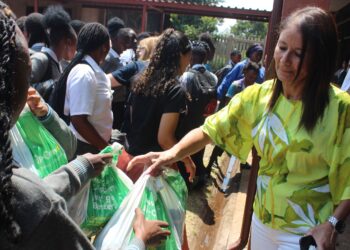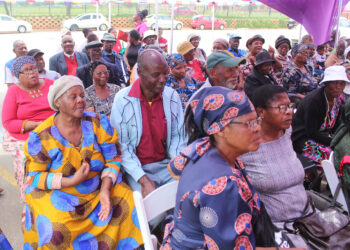The introduction of the Older Persons Amendment Bill speaks to government’s resolve to ensure the safety of all South Africa’s citizens, including the elderly.
The Bill amends the Older Person’s Act of 2006 with the aim of strengthening the protection, care, and services provided to older people.South Africa recently commemorated the annual Older Persons Week from 26-02 October 2025 to honour the efforts of our elders in society.
The commemorative week sought to raise awareness about the issues that impact the elderly and the fact that it has been concluded, should not spell the end of society’s focus on those most consider as our “treasures”.
While the President is yet to assent to the Bill, hard work has been put into it to ensure that older persons— defined in the Bill as anyone aged 60 years or older – are protected from all forms of abuse, including physical, emotional, sexual, and economic abuse, among others.
In addition, the new Bill states that courts must share offender details with the Minister in order to update the abuse register. For the further protection of the elderly, the Bill permits the removal of an older person to temporary safe care without a court order if the person is in immediate danger, provided that a court order is obtained within 48 hours thereafter.It also adds that older persons be protected against harmful practices, including those related to witchcraft accusations, which may affect their health, dignity, and welfare.
The amendments demonstrate that government is conscious of the fact that senior citizens are prone to abuse, an anomaly that it has continued to denounce.
Many will recall the disturbing video that circulated on social media platforms of a young man allegedly assaulting his grandmother in June last year. Earlier this year, six caregivers appeared in court in the Free State for allegedly assaulting an 81-year-old woman at a retirement care centre.
It is also disheartening to hear reports of the elderly being robbed of their pension money by some community members and even relatives. The mistreatment of senior citizens in some cases also extends to them being deprived of their daily meals.
Such cruelty is incomprehensible for the gogos and mkhulus who have played a vital role in raising many of the country’s youth. Through their state-funded old-age pensions and stokvel money, they provided everything from sweet and sticky childhood treats to necessities in the form of school essentials and clothing – all made possible through the sacrifices of the elderly.
Given the high unemployment rate, many a grandmothers and grandfathers continue to share their social grants with their children and grandchildren.
Such incidents where the elderly are not treated with respect, fly in the face of the constitutional mandate that no person should be unfairly discriminated against on grounds such as race or age. These alleged acts also show little regard for the 2006 legislation, which establishes a framework for the empowerment and protection of older persons, as well as the promotion and maintenance of their status, rights, well-being, safety and security – the very legislation that the current Bill seeks to amend.
Government also makes provision for the elderly by providing free essential services such as healthcare, housing and energy across the various municipalities.
However, how we treat the elderly is a direct reflection of the state of our society. Failing to protect them as they grow frail reveals a lack of regard for the wisdom and institutional memory that they hold.
While some in society may hold the view that the elderly are less important because they “are over the hill”, no longer working, or frail and sickly, we can never stop caring for them. Tradition teaches us that some of our blessings come from the elderly.
In a country with a largely youthful population, with Statistics South Africa (Stats SA) data showing that 27.5% of the population is younger than 15 years (16.8 million), legislation like the Older Person’s Amendment Bill indicates that government is mindful of a future in which where there will be more elderly people within communities.
Further Stats SA data in the 2024 Mid-Year Population Estimates points out that about 9.7% (6.13 million) of the population is 60 years or older with the proportion of the elderly increasing over time.
Elders possess a wealth of knowledge that is not always written down, including stories of loved ones who have passed on and places they have been to. Often, this is information that cannot be found in any textbook.
Caring for the elderly must be an everyday occurrence, not something observed only in October when Older Persons Week or Social Development Month is commemorated. It also need not matter whether an older person is one’s relative or not.
As the late former President Nelson Mandela once said: “A society that does not value its older people denies its roots and endangers its future. Let us strive to enhance their capacity to support themselves for as long as possible and, when they cannot do so anymore, to care for them.”
One can cook for them, make them endless cups of tea, mow their lawn or drive them to their doctor’s or clinic appointments, or simply spend time with them to make them feel appreciated and loved.
We are who we are today because of the sacrifices that our elderly have made. As their hands become wrinkly and their hair turns grey, we owe it to them not only to care for them, but to also lend a listening ear as their advice is priceless.While their wisdom cannot be measured in rands and cents, it is crucial for a country’s cultural preservation and development.
Neo Semono for SAnews
Soweto Sunrise News


